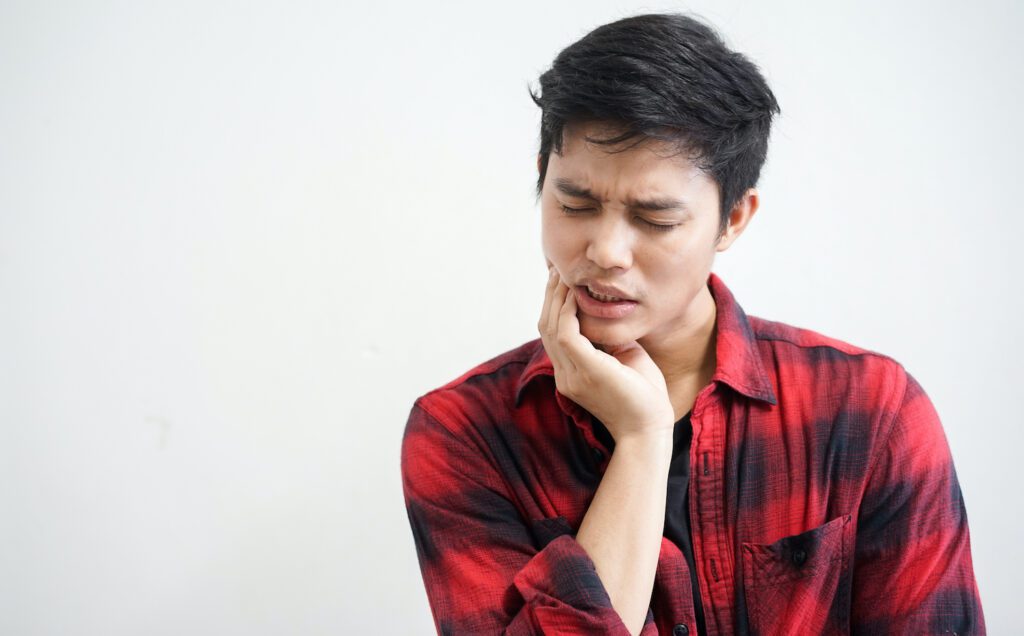Do you grind your teeth while you sleep? Bruxism, or teeth grinding, is the unconscious clenching of the jaw and grinding teeth. Teeth grinding can occur in patients of all ages and Dr. Larsen screens for the common signs of bruxism during routine dental care visits. Teeth grinding is one of the dental concerns Dr. Paul C. Larsen can address at his dental office in Bountiful, Utah.
If you have been grinding your teeth, you may notice you wake up with a sore jaw, sensitive or loose teeth, headaches, or unexplained tooth damage. When this happens, schedule an appointment with Dr. Larsen as soon as you can. A highly trained restorative dentist in Bountiful, UT, Dr. Larsen can provide you with various solutions to prevent teeth grinding. He can also restore your teeth and renew your ability to get a good night’s sleep.
Why Do I Grind My Teeth?
Patients are often unaware that they are grinding their teeth at night until they are presented with more noticeable symptoms. We provide teeth grinding treatment in Bountiful, UT. Dr. Larsen is here to treat the symptoms and causes of teeth grinding:
Alcohol
Drinking alcohol in the evening can make teeth grinding worse. Alcohol affects the way your brain and muscles work while you sleep. Your muscles may feel overactive and trigger bruxism when you’re asleep.
Tobacco
Smoking or using other tobacco products can also increase the chances of grinding your teeth. Like alcohol, tobacco stimulates your muscles and nerves, which can make it harder for your body to relax. This can lead to nighttime teeth clenching and grinding.
Stress and Anxiety
Feeling stressed or anxious is one of the biggest reasons people grind their teeth. When your body feels tense you to clench your jaw during the day or grind your teeth at night. Even kids can grind their teeth when they feel stressed or worried.
Sleep Disorders
Conditions like sleep apnea, snoring, or other sleep problems can also be linked to teeth grinding. If your sleep is disturbed or your body isn’t getting enough rest, it may react by grinding your teeth without you knowing.
A Bad Bite
If your teeth don’t line up when you bite down, it can put extra pressure on certain teeth. A bad bite, or malocclusion, can cause your jaw to work harder and may lead to grinding. Crooked or missing teeth can also affect your bite and increase the chance of clenching or grinding.
Bruxism Treatment in Bountiful, UT
If you grind your teeth and don’t get treatment, it can lead to serious tooth damage over time. At our Bountiful dental office, Dr. Larsen offers gentle, effective treatment options to help stop teeth grinding and protect your smile. He is a Dawson-trained dentist, which means he has special training in how the teeth and jaw work together.
Bite Equilibriation
If your teeth don’t line up correctly, it can cause stress on your jaw and lead to grinding. Dr. Larsen uses advanced tools to check how your bite fits together. He can help fix bite problems that may be contributing to the grinding.
If you have worn teeth, Dr. Larsen can place crowns so your teeth fit together comfortably. He may also recommend treatments like bonding if you have tooth chips or cracks.
Fixing crooked teeth with braces or Invisalign can create a more balanced bite and reduce pressure on your jaw and teeth. However, Dr. Larsen won’t recommend clear aligners if you grind your teeth. He may recommend a night guard first and then orthodontic treatment.
TMJ Night Guard
Our goal for bruxism treatment is to fix any tooth damage that has occurred and provide you with a custom night guard to prevent further tooth damage in the future. Customized night guards fit snugly over your teeth and hold your jaw in a comfortable resting position.
Even if you can grind your teeth together while using this oral appliance, it protects your teeth and prevents tooth damage. Some of our patients even choose to wear their night guard during high-stress situations to prevent tooth damage.
Bruxism FAQs
Read answers to common questions about teeth grinding and bruxism treatment in our Bountiful, UT, dental office:
Why do I grind my teeth unconsciously?
Many people grind their teeth without even knowing it, especially while they sleep. This is called unconscious teeth grinding or bruxism. It often happens because your brain and body are reacting to something, even if you don’t realize it.
When you’re stressed or worried, your body can stay tense, even during sleep. That tension can show up as jaw clenching or teeth grinding. Some people also grind their teeth because their teeth don’t line up properly, or because of habits like chewing on pens or fingernails.
My teeth are worn down. What can be done?
Teeth grinding often causes worn-down teeth, chipped, and cracked teeth. The pressure that teeth grinding puts on your teeth can lead to tooth damage.
Our office provides cosmetic and restorative treatments like dental crowns, tooth bonding, or porcelain veneers. We recommend that you schedule a consultation with Dr. Larsen. He’ll help you determine which method is best to restore the function and look of your teeth.
Will a dentist know if I grind my teeth?
A dentist will visually examine your teeth and gums during routine dental exams. They can find signs of bruxism, including tooth wear and damage. If they notice this damage, they will also take X-rays to see if your TMJ is connected to these signs of teeth grinding. Based on this thorough examination, the dentist will recommend a treatment for your bruxism and any additional symptoms.
Are there different types of bruxism?
Bruxism can occur during the day or during sleep. Daytime or diurnal bruxism can occur due to stressors like work or family life. You may only semi-voluntarily notice yourself clenching your teeth.
Nocturnal bruxism occurs when you are asleep. Most patients who grind their teeth at night only notice their symptoms once they wake up. However, patients may have daytime and nighttime bruxism.
Are bruxism and TMJ disorders the same?
No, bruxism can be a symptom of a TMJ disorder, but they are not the same. Bruxism is marked by teeth clenching and grinding. TMJ disorders are bite disorders that affect the joints that connect the jaw bone to the skull. Patients with TMJ disorders can often experience bruxism as a result of this disorder.
Is a night guard comfortable?
TMJ night guards are customized to you so that they fit snugly over your teeth. Because they’re made specifically for you instead of a one-size-fits-all approach, you should notice they feel more comfortable than an over-the-counter night guard.
We understand that being comfortable while you sleep is a priority. Our team does everything we can to ensure your night guard will not disturb your slumber.
Schedule a Consultation
Fix your bite and treat jaw pain in our office. Get comfortable bruxism treatment in Bountiful, UT. Call Dr. Larsen today at 801-228-0155 or request an appointment on our website.

